
In Africa, as in other regions, persons with disabilities are disproportionately likely to live in poverty and, too often, lack access to education, health care, employment opportunities, housing, social protection systems, justice, cultural expression and participation in political life. The ability of persons with disabilities to participate in society is often frustrated because physical environments, transportation and information and communications systems are not accessible.
In this context, a Toolkit on Disability for Africa has been developed by the United Nations Department of Economic and Social Affairs (UNDESA), Division for Social Policy and Development (DSPD). It is…
Although a modest global recovery is projected for 2017-18, the world economy has not yet emerged from the period of slow growth, characterised by weak investment, dwindling trade and flagging productivity growth, according to the United Nations World Economic Situation and Prospects (WESP) 2017 report.
The report states that the world economy expanded by just 2.2 per cent in 2016, the slowest rate of growth since the Great Recession of 2009. World gross product is projected to grow by 2.7 per cent in 2017 and 2.9 per cent in 2018, a slight downward revision from the forecasts made last May.
Launching the report at the UN Headquarters in New York, Mr. Lenni Montiel,…
Launching the first-ever Sustainable Development Goals report on the new global development agenda adopted in 2015, Secretary-General Ban Ki-moon said that the 15-year undertaking was “off to a good start” but would require all parts of the UN family and its partners to work together.
“We have embarked on a monumental and historic journey,” the Secretary-General told the UN High-level Political Forum on Sustainable Development (HLPF), which opened on 11 July and ended on 20 July 2016, at the UN Headquarters in New York.
“We must all learn, in national governments, in local authorities, in business and civil society, and also at the United Nations, to think differently,” he…
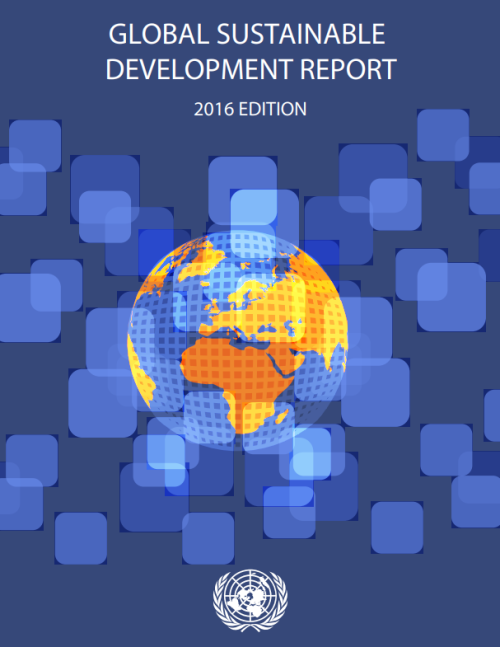
Understanding of the scientific basis for action will be needed to achieve the ambitious and transformative goals of the 2030 Sustainable Development Agenda, according to a new report issued by the United Nations today during the High-level Political Forum on Sustainable Development.
According to the Global Sustainable Development Report 2016, key elements of the 2030 Agenda –such as what it will take to ensure that no one will be left behind — have yet to be thoroughly scientifically researched. The report finds that the new agenda requires asking different questions, many that have not yet been answered by the research.
The report, an assessment of a broad array of…
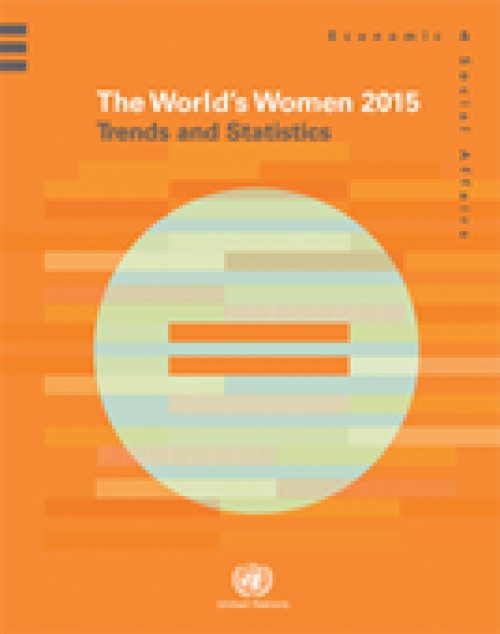
The lives of women and girls around the world have improved in several areas over the last 20 years, according to the new UN DESA report “The World’s Women 2015,” launched today. Coming on the heels of the recently adopted Sustainable Development Goals (SDGs), this new set of data on women and girls worldwide brings into sharp perspective the need for gender equality outlined in Goal 5.
“We cannot achieve our 2030 Agenda for Sustainable Development without full and equal rights for half of the world’s population, in law and in practice,” said UN Secretary-General Ban Ki-moon at a recent event on gender equality organized on the side of the Sustainable Development Summit.…
Evidence shows that the global Goals worked. They galvanized the entire global community to address the most pressing issues at the beginning of the Millennium, centered in lifting people from extreme poverty and improving the lives of those most disadvantaged. “The MDG experience provides compelling evidence that the international community can be mobilized to confront complex challenges. Governments, civil society and a wide range of international actors coalesced behind the MDGs in a multi-front battle against poverty and disease,” said Secretary-General Ban Ki-moon.
They served as a framework for local, national, regional and global monitoring of development progress…
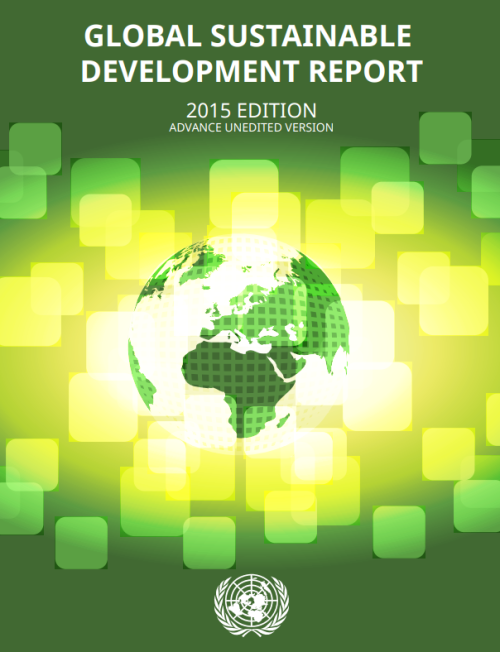
A new United Nations flagship report launched today finds that solutions to the challenges to people and planet must build on clear scientific findings in order to be sustainable. “The successful implementation of the new sustainable development agenda requires a strong scientific foundation that is understood by policymakers,” said Wu Hongbo, UN DESA’s Under-Secretary-General, referring to the proposed 17 sustainable development goals, scheduled for adoption in September in New York.
The 2015 Global Sustainable Development Report, an intergovernmental-mandated report on the science-policy interface for sustainable development, was presented to UN Member States at the High…
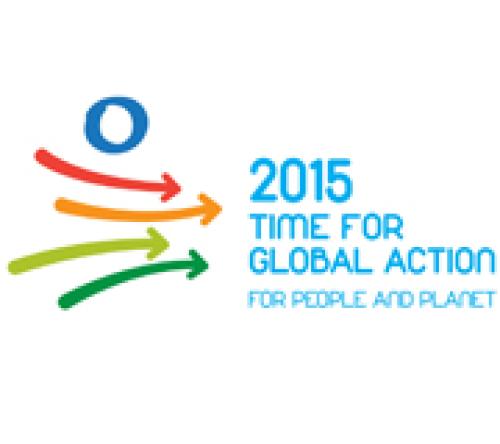
Calling for inclusive, agile and coordinated action to usher in an era of sustainable development for all, Secretary-General Ban Ki-moon on 4 December presented the UN General Assembly with an advance unedited version of his “synthesis report,” which will guide negotiations for a new global agenda centred on people and the planet, and underpinned by human rights. The report was formally issued in the six official UN languages on 31 December 2014.
“Next year, 2015, will herald an unprecedented opportunity to take far-reaching, long-overdue global action to secure our future well-being,” Mr. Ban said as he called on Member States to be “innovative,…
Millions of people’s lives have improved due to concerted global, regional, national and local efforts to achieve the Millennium Development Goals (MDGs), which serve as the foundation for the next global development agenda, according to the report launched by the Secretary-General on 7 July 2014.
With many MDG targets already met on reducing poverty, increasing access to improved drinking water sources, improving the lives of slum dwellers and achieving gender parity in primary school, the report says many more targets are within reach by their 2015 target date. If trends continue, the world will surpass MDG targets on malaria, tuberculosis and access to HIV treatment, and the…
The experience from the Millennium Development Goals has shown that well-defined, objectively measurable indicators can help to maintain focus on internationally agreed development goals and targets, while keeping the world informed of achievements, problem areas and emerging issues.
Looking ahead to the post-2015 development agenda, it will be important to develop a robust monitoring system that draws on traditional data collection methods and innovations in statistics and data collection to develop a monitoring framework that can measure progress on the various thematic areas.
While it is still too early to define a set of indicators and targets for the development…
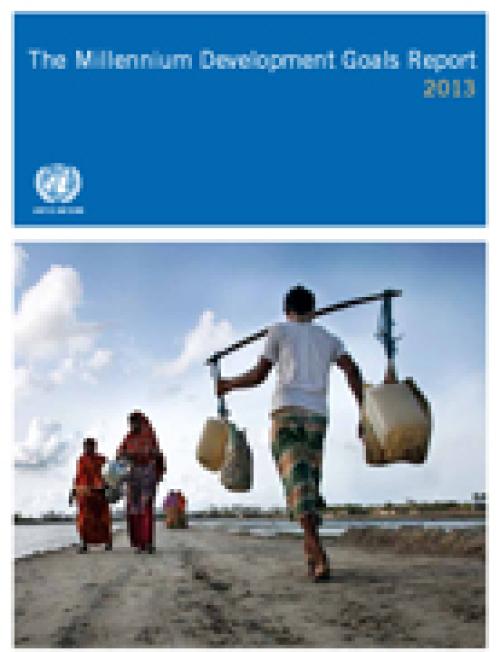
“The Millennium Development Goals have been the most successful global anti-poverty push in history,” Mr. Ban said. “The MDGs have proven that focused global…
The report presents the yearly assessment of global progress towards the MDGs, highlighting several milestones – three important MDG targets have been met well ahead of the target date of 2015. The report says that meeting the remaining targets, while challenging, remain possible – but only if Governments do not waiver from their commitments made over a decade ago.
Based on a master set of data compiled by the Inter-Agency and Expert Group on MDG indicators led by DESA’s Statistics Division, the 2012 report outlines gains in poverty reduction and access to safe drinking water, and an improvement in the lives of slums dwellers in urban areas. The report also highlights important…
 Welcome to the United Nations
Welcome to the United Nations